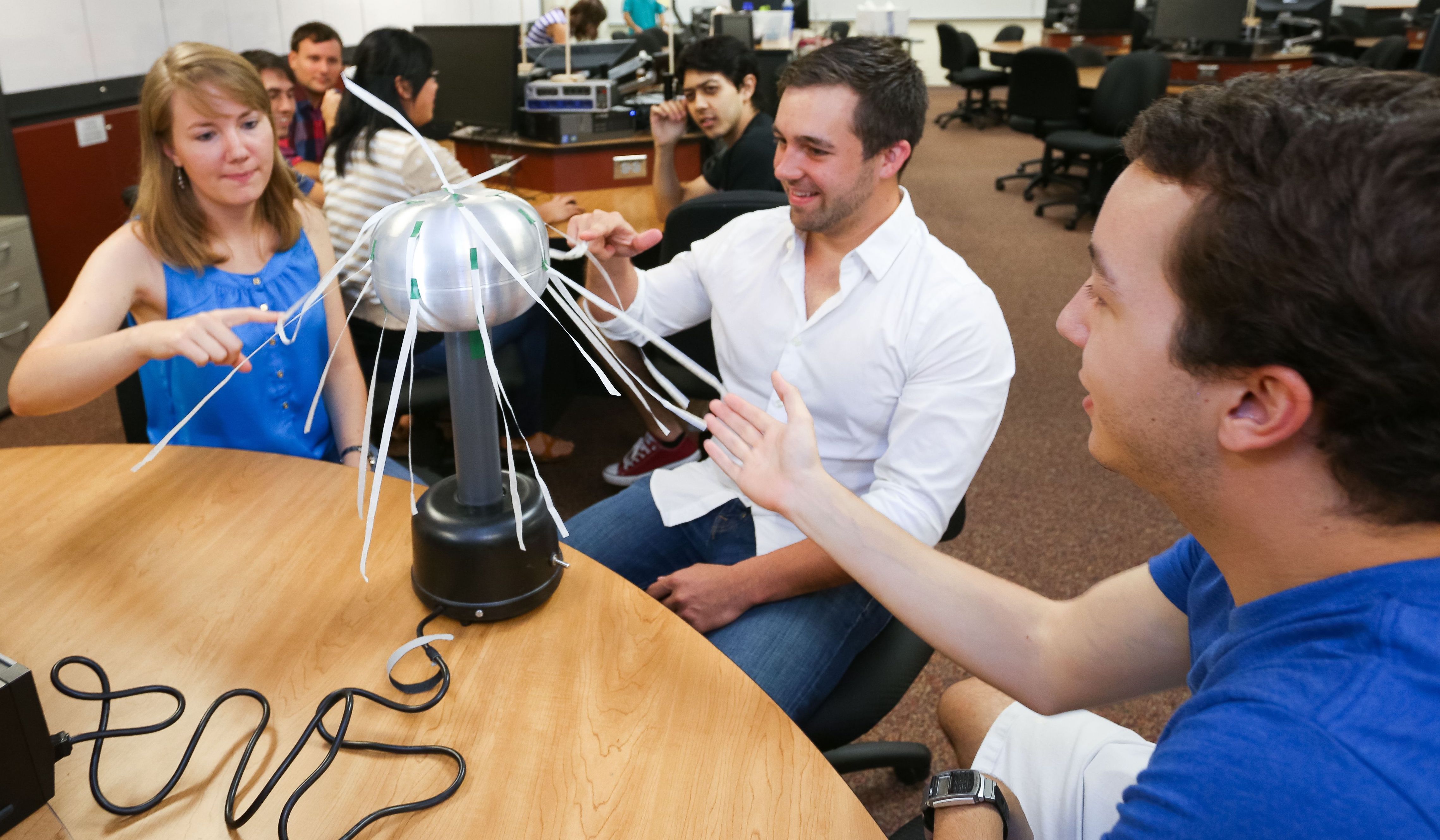PhysTEC Members comprise a national network of institutions committed to developing and promoting excellence in physics and physical science teacher preparation.
Vision: That every high school student has the opportunity to learn physics from a highly qualified teacher.
Mission: To improve and promote the education of future physics teachers.
Why Do Physics Teacher Preparation Programs Need PhysTEC?
The United States has a severe, long-term shortage of qualified physics teachers, largely because most institutions of higher education—those traditionally best-equipped for the task—rarely prepare even a single physics teacher per year.
Colleges and universities still bear the responsibility for preparing physics teachers. In particular, physicists and physics departments must be involved in this preparation.
Since 2001, PhysTEC has helped colleges and universities transform their physics teacher education (PTE) programs by providing funding, professional conferences, resources, and other support. Many of these institutions are now preparing greater numbers of highly-qualified teachers of physics, and some have become national models.
Before PhysTEC … I was the lead person for all worrying about education. Having this APS- [and AAPT-]sponsored program … really raised awareness— Gay Stewart
PhysTEC disseminates its results and reaches out to the physics community through publications and presentations, conferences and workshops, and a monthly newsletter. To expand its reach, the program has developed collaborations with other organizations, including UTeach, the Learning Assistant Alliance, the American Association for Employment in Education, the American Chemical Society, and the Association of Public and Land-grant Universities.
Any opinions, findings, and conclusions or recommendations expressed in PhysTEC-affiliated published material are those of the author(s) and do not necessarily reflect the views of the National Science Foundation.
About PhysTEC's History
In 1999, the American Institute of Physics (AIP) and most of its member societies, including the American Physical Society (APS) and the American Association of Physics Teachers (AAPT), endorsed a statement urging physical science and engineering departments to actively improve training of K-12 physics/science teachers. Community response for bolstering teacher training was swift and support continues to grow.
At the time the statement read: "The American Physical Society urges the physics community, to take an active role in improving the pre-service as well as inservice education of K-12 science teachers. Improving teacher training involves building cooperative working relationships between physicists in universities and colleges and the individuals and groups involved in teaching science to K- 12 students. Strengthening the science education of future teachers addresses the pressing national need for improving K-12 education and recognizes that these teachers play a critical education role as the first and often-times last physical science teacher for most students. While this responsibility can be manifested in many ways, research indicates that effective teacher education involves hands-on, laboratory-based learning. Good science and mathematics education will help create a scientifically literate public, capable of making informed decisions on public policy involving scientific matters. A strong K-12 science education is also the first step in producing the next generation of researchers, innovators, and technical workers." You may view an updated version of the statement, "The Education of Science Teachers," on the APS website.
Societies, colleges, universities, laboratories, and other organizations came together to endorse the statement, and in 2001, the PhysTEC collaboration was created to address the need for qualified physics teachers. PhysTEC asks that organizations wishing to join us also express their support for this statement.
